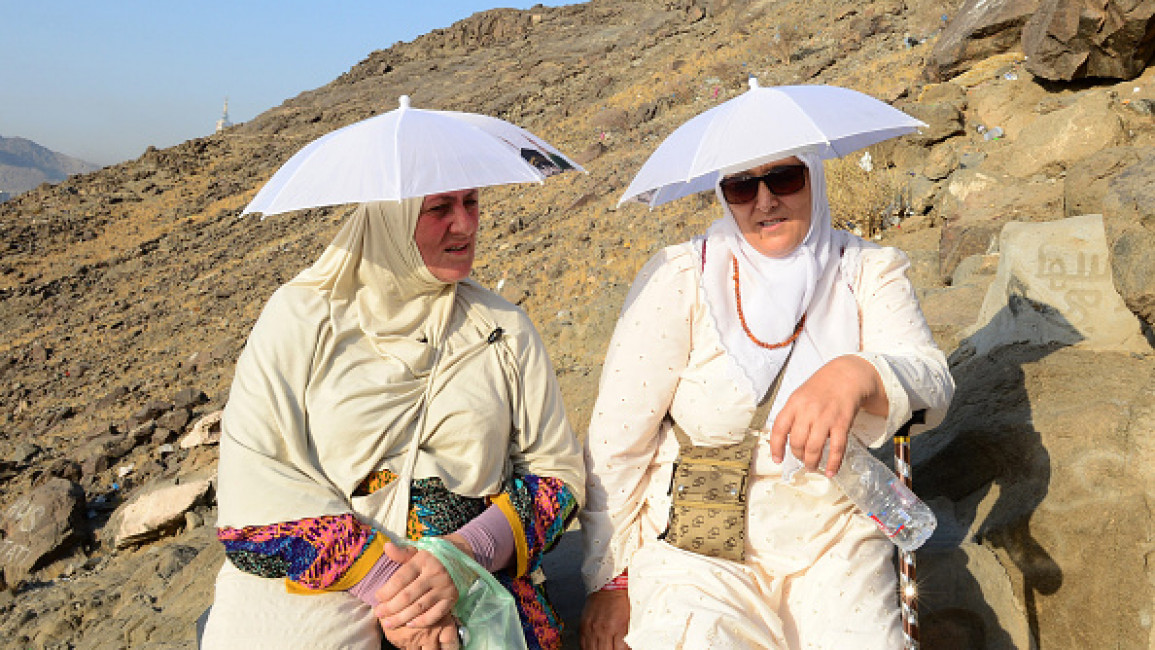Saudi: No Hajj, Umrah for women below 45 without male guardian
Saudi Arabia has reportedly suspended a decision to allow women to perform Hajj and Umrah without a male guardian, a Saudi official has told Egyptian news outlet Masrawy.
The move to allow women under the age of 45 to perform pilgrimage without a male chaperone - known as 'mahram' in Arabic - has been halted "indefinitely", Saeed Bahashwan, member of the national committee for Hajj and Umrah, told the outlet, without giving a reason.
The initial decision affected "Umrah, and not Hajj", Bahashwan claimed in contradiction of earlier press reports, referring to the lesser pilgrimage, which is not compulsory in Islam.
Bahashwan's comments came days after Egypt-based Al-Azhar, the highest scholarly institution for many Sunni Muslims, confirmed the permissibility of women travelling to perform Hajj and Umrah without a male guardian as long as they were in "safe company". However, the Saudi authorities control whether this can take place through the Hajj and Umrah visa process, regardless of permissibility.
Commenting on Saudi Arabia's initial announcement, Al-Azhar Undersecretary Abbas Shoman said that women can carry out the pilgrimage if they feel "safe", adding that the ruling was a "modern reading" on Islamic rulings that prohibit women from travelling without male guardians.
Shoman said that modern-day travel meant a lot of "safety issues" related to the journey "no longer exist" but stressed that it remained "better for women" to travel accompanied by male guardians who can "take care of them if they got sick" during the trip.
A 'moderate' Saudi Arabia
Last year, the Saudi Hajj ministry announced it will allow women of all ages to make the Hajj pilgrimage without a male guardian on the condition that they travel as part of a group.
The decision came as part of supposed social reforms rolled out by the kingdom under its de-facto ruler Crown Prince Mohammed bin Salman, whose 'Vision 2030' sought to open up the ultra-conservative kingdom and wean its economy from oil dependency.
Since his rise to power, Saudi women have been allowed to drive and travel abroad without a male guardian, even against a backdrop of a relentless crackdown against critics of his rule, including women's rights activists.
Social restrictions have also been eased, which saw decades-long bans on cinemas lifted and gender-mixed music concerts and sporting events allowed.
As part of the liberalisation drive, Saudi mosques were ordered last year to lower the volume of mosques' loudspeakers during calls to prayer. There were reports that Saudi Arabia would also allow restaurants to serve food during the fasting hours of Ramadan, which begins next week, for the first time in its history, but the authorities have denied this.
Rights groups however have slammed the 'reforms' as "window dressing" without substance, saying that Saudi rights activists seeking deeper reforms were still silenced, with some ending up behind bars.


![President Pezeshkian has denounced Israel's attacks on Lebanon [Getty]](/sites/default/files/styles/image_684x385/public/2173482924.jpeg?h=a5f2f23a&itok=q3evVtko)



 Follow the Middle East's top stories in English at The New Arab on Google News
Follow the Middle East's top stories in English at The New Arab on Google News


